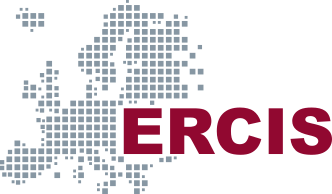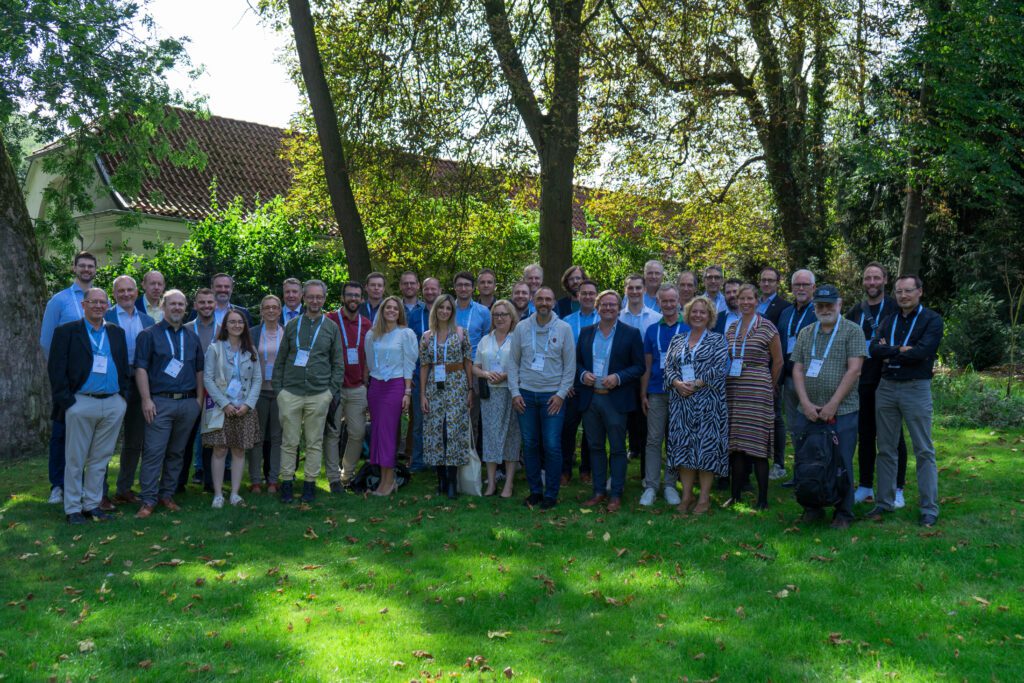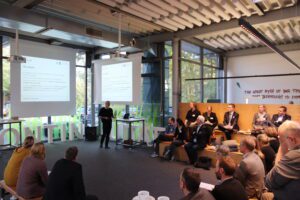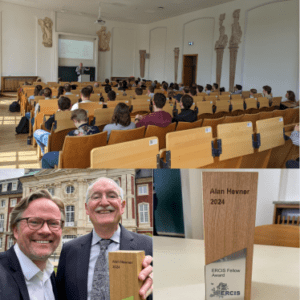About the network
ERCIS is a distinguished international research network dedicated to advancing the field of Information Systems. Comprised of leading universities and industry partners across the globe, ERCIS focuses on collaborative research, innovation, and knowledge exchange.
Through joint EU-funded projects, researcher visits, and interdisciplinary initiatives, ERCIS addresses key challenges in digital transformation. The network not only enhances the quality and impact of Information Systems research but also fosters strong connections between academia and industry, driving forward practical solutions and technological advancements on an international scale.
Network organization
Our research partners are drawn from 26 countries, with a focus on Europe but extending far beyond. Through our extensive partner network, we connect with approximately 50 professors and 300 PhD students in the field of Information Systems and related disciplines. In total, we provide education to over 10,000 undergraduate and graduate students who represent the digital leaders of tomorrow.
Furthermore, our Advisory Board comprises several influential companies that are at the forefront of Digital Transformation. These organizations present our research team with real-world challenges associated with digitization, while our network offers them unparalleled access to highly skilled young talent and senior expertise.
We work together in Research Clusters, forming groups of people united under topical umbrellas. In addition,Competence Centers are practice-related and dedicated to more specific topics.
Network activities
The network lives through joint activities, be it summer schools, research projects, conferences, joint lectures, joint industry projects, or anything else that we work on internationally, together.
There are several activities that are established and recurring. For a network, ties and nodes are most important – caring for them is vital. The ERCIS Annual Workshop, that takes place once a year at a partner institution, is one opportunity to meet in person and strengthen the ties, same as our ERCIS@ECIS meetings at the European Conference on Information Systems (ECIS). Taking our younger generation into the network is one of the goals of our Doctoral Consortia and our Winter School, where our partners serve as faculty and welcome our future colleagues. Keeping connected with challenges from practice is being ensured by Industry Round Tables.
Once annually, ERCIS network members gather for multiple consecutive days at one of the consortium’s participating institutions. During these events, attendees engage in discussions centered around topical issues, welcome newly inducted participants, strategically plan forthcoming research and educational ventures, among other relevant agenda items.
A defining characteristic of these meetings involves selecting a singular subject matter serving as a central theme guiding discourse and deliberations throughout the workshop.
Results were, among others, publications about future trends (e.g., vom Brocke et al, 2010: Current and Future Issues in BPM Research: A European Perspective from the ERCIS Meeting 2010), publications about current topics (e.g., Beverungen et al., 2021: Seven Paradoxes of Business Process Management in a Hyper-Connected World; Coombs et al., 2021: What is it about humanity that we can’t give away to intelligent machines? A European perspective), or the preparation of research projects (RISE_BPM).
In 2024, the Annual Workshop will take place in Viterbo, Italy, at the University of Tuscia, hosted by our partner Prof. Dr. Alessio Maria Braccini.
Boasting prominence as one of the premier conferences catering specifically to the Information Systems (IS) community the European Conference on Information Systems (ECIS) consistently attracts a substantial presence of ERCIS partners. Attending such prestigious events presents an excellent chance to foster professional relationships and expand personal networks. Recognizing this potential, the ERCIS office arranges casual gatherings open to all ERCIS affiliates, providing ideal settings for establishing rapport with colleagues in a relaxed atmosphere.
Should you find yourself attending ECIS as an ERCIS affiliate, do seize the opportunity to stop by and acquaint yourself with fellow members!
This year, around 60 people attended our meeting at Paphos, Cyprus, in an amazing sunset setting.
As we have a lot of PhD candidates within the ERCIS network in different locations around the world, we established regular ERCIS doctoral consortia to foster the exchange of ideas and suggestions for improvement from senior faculty. Researchers with different IS backgrounds as well as other PhD candidates that can give valuable input lead to fresh ideas and new approaches concerning the PhD thesis. Together with a professional and friendly atmosphere, the ERCIS doctoral consortia are a perfect event for improving and sharpening research ideas but also to network and make friends.
Since 2011, ERCIS has been organizing the ERCIS Winter School on Advanced BPM Topics (BPMWS). During this one week seminar, open to students from ERCIS members institutions, ~20 undergraduate students from all over the world come together to learn about and discuss current and future Business Process Management (BPM) topics with some of the most renowned BPM researchers.
Collaborative dialogue with industry stakeholders constitutes a cornerstone principle underlying high-impact research endeavors.
Leveraging the robust connections maintained by our esteemed ERCIS network, we routinely host roundtable discussions addressing salient themes ranging from cutting-edge artificial intelligence integration within business environments to devising effective strategies for implementing bring-your-own-device policies in small and medium enterprises (SMEs).
Additionally, our platform enables thoughtful exploration of emergent phenomena, exemplified by fruitful dialogues surrounding the repercussions of the COVID-19 pandemic on corporate resilience and adaptability. Such exchanges continue to yield meaningful insights and actionable recommendations, bridging the gap between theoretical frameworks and practical implementation.
ERCIS Fellowship
On occasion of its 20th anniversary in 2024, ERCIS initiated the Fellowship Award, to recognize individuals who have made outstanding contributions to the European Information Systems community. ERCIS Fellows have inspired generations of scholars across Europe both through their work and through serving as a role model for courageous, responsible, and impactful work of significant value to society. ERCIS fellows are recognized for their fundamental contributions to the Information Systems field across Europe, having inspired early career academics, promoted innovative thinking, and supported diversity and inclusion through their actions.
The first receipient of our award is Prof. Alan Hevner.
Alan R. Hevner is a Distinguished University Professor and Eminent Scholar in the School of Information Systems and Management in the Muma College of Business at the University of South Florida. He holds the Citigroup/Hidden River Chair of Distributed Technology. Alan Hevner is recognized for his lifetime achievement to inspire and guide design-oriented research in Europe. His co-authored seminal paper introducing Design Science Research (DSR), published in the journal “Management Information Systems Quarterly”, and cited over 20,000 times, gave inspiration and guidance to generations of Information Systems students and scholars.
In his laudation, Professor Jan vom Brocke, Director of ERCIS, recognizes that Alan Hevner serves as a role model for courageous, responsible, and impactful research.
Becoming a part of the network
We believe that great collaboration requires trust, mutual interests and understanding. We wish to emphasize that participation in our network requires active engagement and collaboration with fellow members. There are two main paths towards becoming part of the ERCIS family:
ERCIS Partner: To become an official ERCIS Partner, you must receive a nomination from another existing Partner and subsequently have your application approved by the Steering Committee. This selection process adheres to strict standards of transparency and fairness, ensuring equal opportunities for all applicants.
Research Affiliate: If you seek a less formal arrangement, consider joining us as a Research Affiliate. This status is granted through direct appointment by an established ERCIS Partner. Please get in touch with them, if you are interested.
ERCIS (Distinguished) Fellowship: Prestigious appointments reserved for select scholars who demonstrate exceptional contributions to the advancement of knowledge in the realm of information systems, bestowed by the Steering Committee.



